Profile: Michael Ignatieff of Canada's Liberal Party
- Published
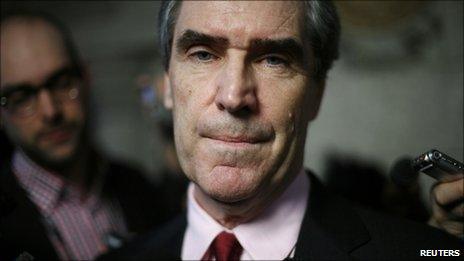
Few political parties can boast one of the Western world's most-noted intellectuals as their leader.
Michael Ignatieff, who has led Canada's opposition Liberal Party since 2006, is a former Carr professor of the Practice of Human Rights and director of the Carr Centre for Human Rights Policy at Harvard University.
He has written 17 books on subjects as diverse as nationalism, his family history and Isaiah Berlin, and briefly had a career as a journalist including a stint fronting arts programmes for the BBC.
Despite only entering Canadian politics six years ago, the 63-year-old has said that becoming a politician fulfilled a long-held ambition.
"At 21, I felt that one day I would like to run for public office, but a funny thing happened on the way," he said.
Canadian abroad
Mr Ignatieff was born in Toronto in 1947, the son of a Russian-born diplomat.
Mr Ignatieff's paternal grandfather was Count Pavel Ignatieff, education minister for Tsar Nicholas II, while his great-grandfather was minister of the interior under Tsar Alexander III.
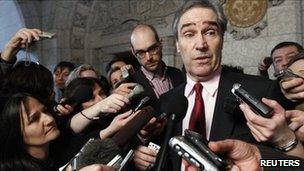
Mr Ignatieff has struggled to reverse his party's fortunes
On his mother's side, he is related to a number of prominent political activists and commentators.
He attended university in Toronto, Oxford and Harvard, and worked as a part-time journalist and volunteer for the Liberal Party in the late 1960s.
He then pursued a highly successful career as an academic outside Canada, returning only in 2005, to take up a professorship at the University of Toronto.
In 2006 Mr Ignatieff was elected MP for Etobicoke-Lakeshore, on the outskirts of Toronto in the province of Ontario, in an election that saw the Liberals lose to the Conservatives, led by Prime Minister Stephen Harper.
His candidacy was controversial.
He was heavily criticised by his opponents for having spent little time in Canada over the past three decades. In addition, his two rivals were disqualified, and many local party members felt he was parachuted into the seat.
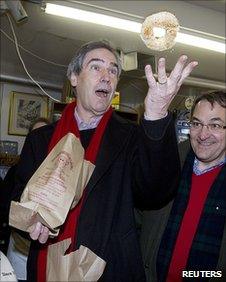
Mr Ignatieff says he will not enter a coalition
Mr Ignatieff's support for the Iraq war, which he says he backed because of Saddam Hussein's treatment of the Kurds, also pitted him against his own party.
During the campaign, he denied harbouring any leadership ambitions, but he stood for the party's top post later that year, losing out to Stephane Dion, for whom he became deputy leader.
When Mr Dion stood down in 2008, after losing another federal election to the Conservatives, Mr Ignatieff stood again for the leadership and won.
As party leader, he maintained the party's centrist position but struggled to reverse support for Mr Harper's minority government.
Commentators say he has done much to counter his image as an aloof intellectual, crisscrossing the country in a series of road trips in a bid to win over the public.
Nevertheless, he has failed to make significant headway on the campaign trail ahead of May's federal election, with polls suggesting his party is losing ground to the left-leaning NDP, and risks slipping into third place.
Mr Ignatieff has dismissed suggestions that he could lead a coalition with the NDP to oust the Conservatives, but polls suggest that an outright Liberal victory is highly unlikely.
- Published5 April 2011
- Published26 August 2016
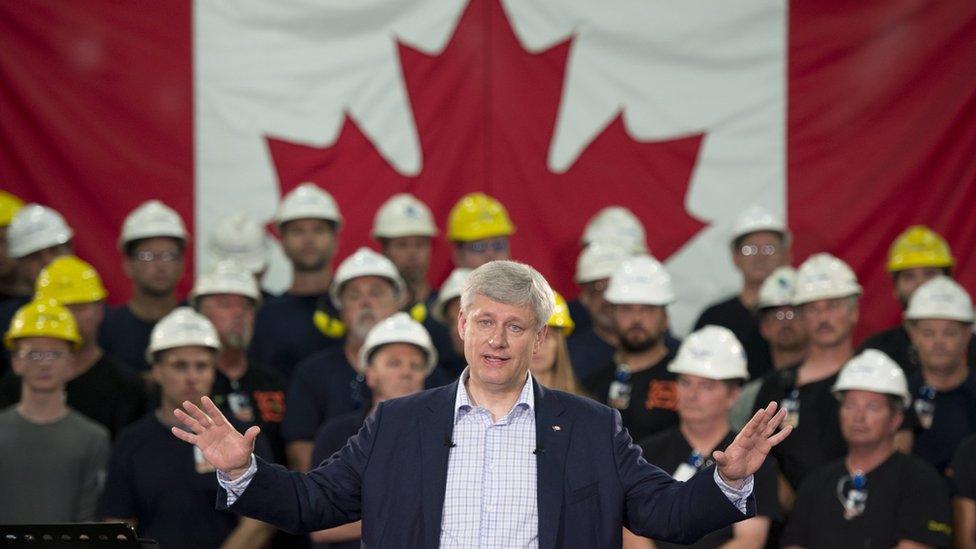
- Published29 April 2011
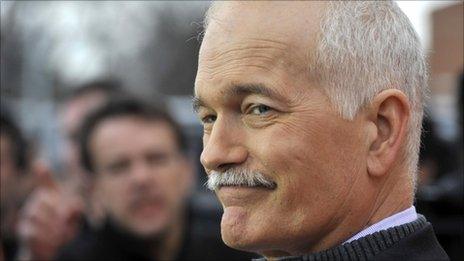
- Published30 April 2011
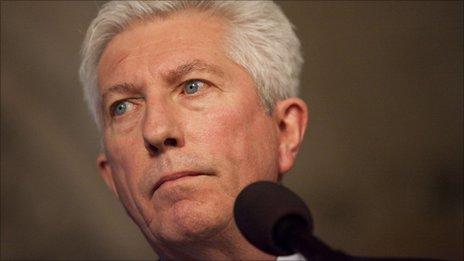
- Published28 April 2011
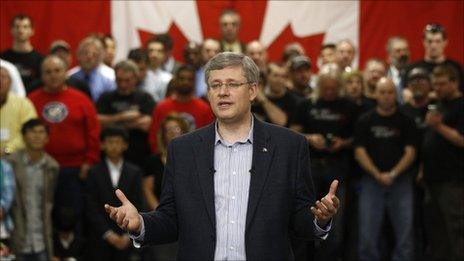
- Published22 April 2011
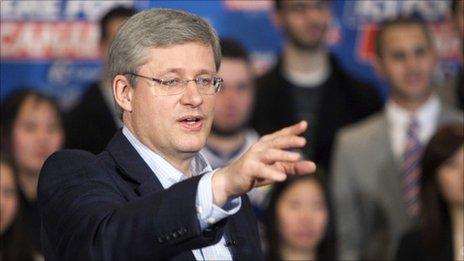
- Published21 April 2011
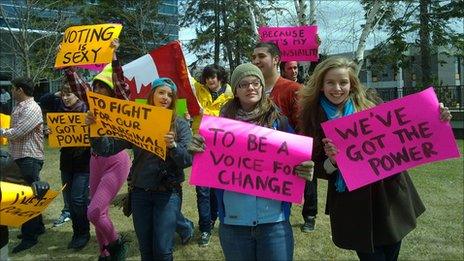
- Published13 April 2011